Lots to report with the big news being the (possible) agreement that Britain will rejoin Horizon. We have the highlights from the NHS workforce plan and some graduate employability data.
Horizon hopeful but not certain:
The UK and EU have apparently agreed a draft deal on Britain’s re-entry into the Horizon Europe research programme. Politico report:
- UK Prime Minister Rishi Sunak will be presented with the draft deal by officials this weekend ahead of a crunch meeting with European Commission President Ursula von der Leyen next Tuesday where the final agreement may be confirmed. Talks finally restarted in earnest in March, after London and Brussels struck the Windsor Framework deal. Expectations were high of a swift resolution after the Commission confirmed it would not require the U.K. to pay backdated participation fees for the two years of the Horizon program it had missed. But the U.K. government pressed for a bigger discount, arguing the two-year hiatus had left British-based researchers and businesses in a weakened position compared to their peers across Europe because they were prevented from leading multi-country research consortia, and had already changed their research plans due to the uncertainty.
- British civil servants produced modelling to estimate how much U.K.-based scientists are likely to win back in grant funding in the final five years of the scheme, and requested a further rebate to help fill the gap… The negotiations on Britain’s contributions concluded late on Tuesday evening, the first official said, with the Treasury on board with the proposal. They declined to give exact details of the financial arrangement.
- Sunak is expected to make a decision on whether to proceed when he studies the deal in detail this weekend, ahead of a bilateral meeting with von der Leyen in the margins of the NATO summit in Vilnius, Lithuania, next Tuesday. “It’s going to be crunch time over the weekend,” said the second government official privy to the outcome of the discussions, adding that next Tuesday’s meeting would be a “critical juncture” in the discussions…A British government spokesperson said Wednesday: “Talks are ongoing and therefore, we have not yet agreed a deal.”
Research Views: Former universities minister Lord David Willetts has called on the government to move responsibility for HE from the Department for Education (DfE) to the Department for Innovation, Science, and Technology (DSIT). He stated the DfE and OfS have a tendency to treat universities like “poorly performing secondary schools” rather than mature research performing organisations. He also noted nothing was being done about the defacto cut in research funding that DfE is engendering via a refusal to raise home tuition fees. Willets writes (for Policy Exchange) in: The eight great technologies ten years on. He believes that the industrial strategy (and the Government’s practice of “picking winners” – the Government choosing industries to invest in) has reaped dividends for the UK. He also finds that universities sitting outside of the public sector is a good thing for UK innovation. It provides freedoms on pay and borrowing and avoids the heaviest regulation. Finally Willett’s advocates for a centre for doctoral training in each technology. You can read a short summary of the Eight Great Technologies paper here.
Research: Quick News
- Research Integrity: a widely used European Code of Conduct for Research Integrity has been updated with a greater focus on areas including the culture of the work environment (Research Professional).
- Medical funded research: The Medical Research Council has announcedthat it will require the researchers it funds to consider diversity when designing clinical and preclinical scientific experiments. Characteristics such as sex, gender, age, ethnicity and socio-economic position will need to be taken into account in all studies involving people, including by peer reviewers, and diversity and inclusion should also form part of public engagement activities (Wonkhe).
- Investment Zones: The Department for Levelling Up, Housing and Communities has announcednew investment zones to grow the economy in Scotland.
- Entrepreneurial campus (Scotland): Humza Yousaf, the First Minster of Scotland, announced a blueprint for innovation in Scottish universities following the publication of the Entrepreneurial Campus Recommendations include: teaching practical entrepreneurial skills as part of the wider university curriculum; encouraging collaboration between education institutions by strengthening global networks; supporting more spin-out companies to commercialise research and create innovative products; attracting alumni and experienced entrepreneurs back into colleges and universities as practitioners and mentors. A £5.5m increase in the 2023-24 University Innovation Fund accompanies the new approach.
- ARIA: Sir Patrick Vallance (previous Government Chief Scientific Adviser) has been appointed as a non-executive director of the Advanced Research and Invention Agency (ARIA). The Government’s press release provides details here. This debate provides an update on the progress of ARIA since it was established.
- REF: Wonkhe – The Hidden REF group, which aims to promote research overlooked by the Research Excellence Framework, has launcheda manifesto calling on higher education institutions to commit to submitting at least five per cent of their non-traditional research outputs to REF 2028. The manifesto notes that the proportion of submitted outputs not related to publications or books fell from six per cent in the 2008 Research Assessment Exercise to 2.4 per cent in REF 2021.
Parliamentary Questions:
Blogs:
Regulatory
Parliamentary Question: 30 universities under investigation by OfS for breach of registration conditions.
Graduate employability
The DfE published the 2022 Graduate labour market statistics (including postgraduate statistics).
In italics are the DfE’s detailed explanations of the data:
- The graduate premium remains intact – graduates have better employment rates than non-graduates.
Working-age graduates and postgraduates continue to have higher employment rates than non-graduates.The employment rates for both graduates and postgraduates increased in 2022 compared to 2021, with postgraduates having the largest increase. There was a small decrease in employment rates for working-age non-graduates.
- Both graduates and postgraduates increased their employment rate.
In 2022, the employment rate for working-age graduates (those aged 16 – 64) was 87.3%, an increase of 0.6 percentage points on 2021 (86.6%).For working-age postgraduates, the employment rate was 89.3%, an increase of 1.1 percentage points on 2021 (88.2%). For working-age non-graduates, the employment rate was 69.6%, a decrease of 0.2 percentage points from 2021 (69.8%).
- More postgraduates were employed in high skilled employment than graduates. Few non-graduates were in high skilled employment
- In 2022, 66.3% of working-age graduates were in high-skilled employment, compared to 78.3% of postgraduates and 23.6% of non-graduates.In 2022, the percentage of working-age graduates and postgraduates in high-skilled employment was 1.1 percentage points higher than in 2021. The percentage of working-age non-graduates in high-skilled employment increased by 0.2 percentage points compared to 2021.
- Salaries: the median nominal salary for working-age graduates was £38,500. This was £11,500 more than working-age non-graduates (£27,000), but £6,500 less than working-age postgraduates (£45,000).In nominal terms, salaries increased for all groups. However, in real terms (2007 prices, using CPI-H), salaries for graduates and non-graduates remained the same from 2021 to 2022, whilst postgraduates saw a decrease of £1,000. The gap between the median salaries of graduates and non-graduates has increased by £1,000 since 2021 in nominal terms and by £500 in real terms. Please note, salaries are calculated using earnings from individuals’ full-time main jobs only.
Graduate characteristics (the data reported does not include postgraduates):
Disability:Disabled graduates were less likely to be employed (highly skilled or otherwise) and more likely to be inactive than their non-disabled peers. The inactivity rate for disabled graduates (19.2%) was more than double the rate for non-disabled graduates (8.8%).
Ethnicity: White working-age graduates had the highest employment rate (87.5%) and high-skilled employment rate (66.9%) in 2022.
- Other Ethnic Group graduates saw the lowest employment rate (85.3%), while Black or African or Caribbean or Black British graduates saw the lowest high-skilled employment rate (58.5%).
- The variation in the high-skilled employment rate across ethnicities was much higher (a range of 8.4 percentage points) than the variation in employment rates (a range of 2.2 percentage points).
- Black or African or Caribbean or Black British graduates had the lowest inactivity rate (8.6%). Graduates in the Other Ethnic Group had the highest inactivity rate (11.7%).
- White graduates had the lowest unemployment rates (2.3%), compared to Black or African or Caribbean or Black British graduates who had the highest unemployment rates (4.9%).
Degree classification: There was little difference in employment status between graduates achieving a first and upper second class (2:1) degree. Working-age graduates with either a lower second (2:2) and third class degrees had slightly lower employment and high-skilled employment rates and higher inactivity rates compared to those with first class and upper second degrees.
Gender: In 2022, both working age graduate employment rates and graduate high-skilled employment rates were higher for males compared to females (88.6% and 86.1%) and (70.3% and 62.5%) respectively. The lower employment rates for female graduates are explained by higher rates of inactivity.
Part time: Part time working increases as the cohort ages. Non-graduates also had higher incidences of part time working. Females were also more likely to work part time.
Student Debt
It’s been a busy week for the DfE who also published the student loan forecasts (for England). We discover that 27% of 2022-23 student starters are expected to pay their loan back in full – compared to 61% of 2023/24 starters.
The DfE notes:
- In total £20.1 billion was issued in financial year 2022-23, as published by the Student Loans Company.This was composed of: 94% Plan 2 full-time higher education loans, 4% Master’s loans, 2% Plan 2 part-time higher education loans, 1% Advanced Learner Loans, <1% Doctoral Loans.
- Total student loan outlay is forecast to increase by 20% between financial year 2022-23 and 2027-28 to £24.0 billion in nominal terms.This is mainly driven by increases in full-time undergraduate higher education loan outlay, partly reflecting increases in average loan amounts (forecasted to rise by 10% between academic year 2022/23 and 2027/28) and forecasted increasing loan-borrowing entrants.
- Total undergraduate loan-borrowing entrants are expected to grow by 7% over the forecast period, from 544,000 in academic year 2021/22 to 580,000 in 2027/28.This is largely driven by forecasted growth in the 18-year-old population from 2021/22.
- As loan repayments depend on borrower’s income and borrowers are only liable to repay for a fixed number of years, Government does not expect all loans to be repaid in full and expects to subsidise a proportion of student loans.
- Of the loans issued in financial year 2022-23, the government is forecast to subsidise:
- 28% of Plan 2 full-time higher education loans (44% in 2021-22)
- 21% of Plan 2 part-time higher education loans (33% in 2021-22)
- 46% of Advanced Learner Loans (55% in 2021-22)
- 0% of Master’s loans (0% in 2021-22)
There’s lots more information here, including on student borrowing and repayment. Finally here’s the student loan cost to the taxpayer.
Information on long term student loan projections will be released later in July.
Other news:
- Wonkhe have a short comparison of the graduate earning and loan forecasts. They conclude: The upshot here is that the government is taking more funds out of a dwindling graduate income, and intends to take substantially more from lower earnings deciles in future. It’s like the diametric opposite of a progressive scheme.
- Wonkhe coverage on loans: Following a feature on Good Morning Britain on Wednesday, the Press Association coversMartin Lewis’ explainer on “Plan 5” student loans. i News invites readers to “meet the 18-year-olds who face repaying student loans until their sixties”, and the Express has a profile of a student working 70 hours a week who “lives off toast” because his student loan is “not enough”.
- The All-Party Parliamentary Group for Students has published a report on the impact of the cost-of-living crisis on students in further education.
Skills Shortages
The British Chambers of Commerce published their annual Business Barometer which checks skills shortages across British business. It finds:
- 73% of organisations report skills shortages (86% in large organisations), usually due to lack of applicants. 72% of organisations say skills shortages increase the workload on existing staff.
- 54% of organisations say they don’t have initiatives, skills programmes, or adjustments for specific talent pools, including under-represented groups. This rises to 65% in micro-organisations.
- Across all organisations in the UK, the most-cited type of role or skillset they were facing shortages in was Engineers, followed by Sales and Admin.
Missing skills:
- The manufacturing sector is calling for individuals to fill engineering, construction, or skilled technical roles.
- In the consumer-facing sector, hospitality roles such as chefs and catering staff were most likely to be cited, alongside online sales and marketing, and administrative roles.
- In the B2B sector, the roles most in demand were heavily weighted towards administration, IT, sales and account management.
- Respondents in the public, health or third sectors reported a wide range of roles, both sector-specific, such as education and healthcare roles, as well as administrative and support roles.
- By nation, the following types of roles were cited (in order) by organisations:
- Scotland: Engineers; IT; Social care; Trades; Admin.
- England: Engineers; Sales; Admin; Construction and trades; IT.
- Wales: Marketing; Engineering; Skilled (inc. skilled workers, chefs); Support workers; Admin.
- Northern Ireland: Accountants; Medical; Skills (inc. technicians, joiners, electricians, welders); Customer Service; Admin.
Barriers to hiring:
Re: candidates applying for the job:
- 38% of respondents cited candidates’ quality or suitability
- 31% cited candidates’ salary expectations
- 21% cited candidates receiving counter offers, and
- 16% cited candidates’ flexible working expectations
- Manufacturers were the most likely to report that they had been prevented from hiring staff.
What is interesting for the HE sector is that only 38% relates to graduate suitability (learning/skills). Instead competition (for better salary/flexibility/availability of other roles) is preventing businesses hiring to fill their skills gaps. It’s a similar picture in the data on leaving employment (37% go to a better offer, 26% expect a better salary and 11% want more flexible work arrangements). Few employers (and mostly only large businesses) have used the visa system to recruit international workers to plug skills gaps.
International
The New Conservatives group published The New Conservatives plan to cut migration. Of most relevance to HE in their proposals are:
- Raise the main skilled work visa salary threshold
- Extend the closure of the student dependent route (see page 8 for detail)
- Close the Graduate Route to students (see page 8 for detail)
- Reserve university Study Visas for the brightest international students (see page 8 for detail)
- Raise the minimum combined income threshold for sponsoring a spouse and raise the minimum language requirement
Wonkhe summarise the Government’s response: In response to proposals from the “New Conservatives” group to do away with the graduate route, a spokesperson for the Prime Minister yesterday stated that “highly trained students with the skills the UK wants and needs” are to be welcomed, though went no further than saying they were “unaware” of any plans to change post-study work rules. The Times and the Guardian have the government response.
Social Mobility Commission
Alun Francis has been appointed as Chair of the Social Mobility Commission and Baroness Stowell of Beeston was appointed to the Social Mobility Commission Board. Alun is a long standing member of the commission previously as the Deputy Chair and the Interim Chair.
2023 will see the publication of the next State of the Nation report, in which the SMC will also overlay these metrics by UK regions, and give additional breakdowns by other characteristics including sex, ethnicity and disability. These breakdowns will connect personal characteristics to a place, and can help to inform early thinking about policy solutions. Baroness Stowell was previously Chair of the Charity Commission (2018-21).
Lost potential
The Sutton Trust published Social Mobility: The Next Generation – lost potential at age 16. The report looks at the secondary school progress of young people from different backgrounds who were in the top third of attainers at the end of primary school. They state it reveals the extent to which the talent of high-potential disadvantaged young people is being wasted due to inequalities in society and education. Key points:
- Highly-able disadvantaged pupils are almost twice as likely as similarly talented classmates to drop out of the top third of attainment at GCSE, achieving on average a whole grade lower per subject than the most affluent highly-able children.
- Within the disadvantaged high attainer group, those most likely to fall behind at GCSE included boys, White and Black Caribbean pupils, those with Special Educational Needs, and pupils in the North East.
- Disadvantaged high attainers are three times more likely to be a young carer.
- 21% of disadvantaged high attainers feel they don’t have much of a chance in life.
- 62% of better-off high-potential pupils got five or more 7-9s at GCSE in 2021, compared to 40% of high-potential children who were disadvantaged.
- Over 28,000 disadvantaged young people who would be expected to achieve top grades at GCSE between 2017 and 2021 did not do so, impacting their future life chances.
- In Year 12, disadvantaged high attainers were nearly twice as likely to be at a Further Education college (12%) compared to other high attainers (7%).
- Disadvantaged high attainers were over three times more likely to lack a suitable device to study at the beginning of the pandemic, and twice as likely to lack a suitable place to study.
- They were less than half as likely to receive private tutoring compared to other high attainers, but more likely to receive catch-up tutoring at school – 26%, compared to 18% of other high attainers. Though this was less than other FSM pupils (34%).
- When asked about what they are most likely to be doing in two years’ time, disadvantaged high attainers were 10 percentage points less likely to report that they think they will be studying compared to other high attainers, at 65% and 75% respectively. The figure for private school students of any attainment level is 85%.
The report makes a series of recommendations to tackle the lost potential from page 7. For universities it includes:
- To make better and more ambitious use of contextual offers (including reduced grade offers) and admissions, to acknowledge the attainment gap.
- Findings in this report show that disadvantaged students with high potential often underperform in the school system. Therefore, universities should make admissions decisions that take this context into account. For admissions decisions made for those impacted by the COVID-19 pandemic, including the summer 2023 intake, this is particularly important, especially for those who just miss out on their offer grades.
- To recognise the disruption faced by students joining them in the autumn by supporting their transition and success in higher education.
- When students arrive this autumn, universities should identify key gaps in learning at an early stage in the first term, and provide continuing support if necessary, as well as support for student mental health and wellbeing.
Quick News
- Wonkhe: There is significant coverage across the media of the US Supreme Court’s decision to ban “affirmative action” in higher education admissions, which involves universities taking race into account when making decisions. The Independent, BBC News, the Mail, Telegraph, the FTand the Times all cover the story.
- Wonkhe: The Office for Students has published an evaluationof the Disabled Students’ Commission. The commission was set up in 2020 as an independent group to develop and support the disabled student experience in higher education. The OfS is also establishing a new Disability in Higher Education Advisory Panel to “consider and review how universities and colleges currently support disabled students, drawing on evidence, research and analysis from the sector to make recommendations on how to support their educational experience”.
- Wonkhe: The Office for Students has publishedan interim evaluation of its programme to improve access and participation for Black, Asian and minority ethnic students in postgraduate research, a joint project funded by OfS and Research England. The evaluation, conducted by King’s College London and TASO, looks at the progress made in the first year of the programme, and contains reflections from project leads. TASO also has a blog on the subject.
- Scotland is reviewing support for part time learners.
- Wonkhe blog: Next academic year will see new data available on students with parental responsibilities. Let’s not waste this chance to support them, urges Andrea Todd.
Labour HE policy
Labour continue to drip feed their policy approach into the public domain. Dods have summarised Labour’s ‘small p’ policy into one document: Destination 10 Downing Street the Labour policy roadmap. Here’s a summary of their most interesting intentions relevant to HE:
- Transform the Apprenticeship Levy into a new Growth and Skills Levy enabling firms to spend up to 50 percent of their levy contributions on non-apprenticeship training including modular and skills courses.
- Set up a new expert body, Skills England, to help meet skills needs across all regions.
- Ban unpaid internships, except when part of an education or training course.
- Aim to create a world class vocational education system and apprenticeships by 2030, with local government having a greater role in determining training in their area.
- Reform university tuition fees system to lower pay-back costs for graduates
- Increase private and public R&D spending to 3% of GDP, improve collaboration between universities, business and local economic institutions, and enable universities to develop self-sustaining local clusters of innovation and investment.
- Labour’s Start-up, Scale-Up report recommendations include encouraging more spin-outs from UK universities and building on the R&D tax credit system.
- Create 7,500 more medical school places, 10,000 more nursing and midwifery clinical placements per year, and train 5,000 more health visitors. (The current Government has beaten them to this one.)
Labour also set out five missions for a better Britain. The briefing on mission 5 – to break down the barriers to opportunity for every child, at every stage and shatter the class ceiling – is available here and Kier Starmer’s launch speech here. Of HE interest are:
- Labour’s target is to have 75% of young people qualified to Level 3 by 2030.
- They will also aim for over 85% of young people to be in a sustained destination by 2030.
- This includes more young people who have completed a level 3 qualification moving onto higher level education and training, with over 70% moving onto higher level opportunities by 2030.
- They will continue to be informed by the report of the Council of Skills Advisors.
- Train over a thousand new careers advisors, and ensure all careers advisor have up-to-date knowledge of post-16 pathways, to give every young person access to professional advice and guidance at their school or college
- Labour supports T levels (although thinks they’ve been mismanaged)
- They welcome the work of the Civic University Network to establish a peer-review learning to support and expand the work of universities in responding to the needs of their local community. They will encourage further collaboration between universities and colleges.
- Labour will undertake a period of review, with the aim of streamlining regulation and ensuring that regulators are supporting cooperation and collaboration between colleges and universities.
- Labour will reform the student finance system, possibly through a model that would see monthly payments for graduates reduced, without the need for additional government funding.
- They also aim to reduce the trend of declining numbers of adults participating in education and training.
HEPI
Catch up on the recent publications from the Higher Education Policy Institute:
And lots more – access here.
New: ‘Boycott’ Bill
A new Bill has been introduced into Parliament – the Economic Activity of Public Bodies (Overseas Matters) Bill – seeks to prohibit public bodies from taking overseas procurement and investment decisions which run counter to government policy. Wonkhe have an explainer blog.
Wonkhe say:
- Should universities “speak with one voice” internationally – and should this voice match the government’s foreign policy stance? A new piece of legislation seeks to answer this question in the affirmative. What was trailed as a move to stop councils participating in Boycott, Divest and Sanctions campaigns targeting Israel has emerged as something much broader, with university activity explicitly targeted. The proposed law would prohibit public bodies from making decisions about procurement and investment in a way that indicates political or moral disapproval of a foreign state, unless the government agrees – quite the legislative ambition. Such activity would potentially be liable to investigation and fines under the legislation – for higher education institutions in England, this would be an additional area of responsibility for the Office for Students.
- The Economic Activity of Public Bodies (Overseas Matters) Bill is already facing opposition from – to pick out a few highlights – Jewish student groups, China hawks, and environmental campaigners. There’s also a clear question over its practicality, with its parliamentary journey likely to be long and contested.
The Bill has divided parliament with critics on both sides of the House. Wonkhe have a good blog following the second reading of the Bill: The boycott bill gets a mauling. Excerpts:
Nadia Whitthome (Labour) argued that people tend to not want their own university or local authority to be complicit in human rights abuses: In Nottingham, we have significant numbers of people, including Hongkongers and those from other parts of the world, who have fled from many countries perpetrating human rights abuses. They rightly do not want their councils or universities to be complicit in human rights abuses that their family and friends continue to experience.
Kit Malthouse (Conservative): We have just passed a law to guarantee academic freedom: freedom on campus. For that freedom now to be restricted. particularly for those in leadership positions in universities, strikes me as perverse. It should come as no surprise that the Union of Jewish Students is flatly opposed to the Bill, which is apposite given that its members are often the people most exposed to antisemitism in this form.
A legal briefing from Richard Hermer KC:
- Given universities are “hybrid” public authorities, the bill would only apply to those activities that are public in nature. But even if we ignore student campaigns for a moment, the pressure on universities to have and adopt ethical policiesfrom research funders could create real issues if a university is prevented from even thinking about human rights around the world.
- The second big critique surrounded the so-called “gagging clause” in the bill. Clause 4 prohibits public bodies from making public statements indicating that they intend to act in a way that would contravene the ban, or that they would, in theory, intend to act that way if not for the ban.
- That would appear to mean that a member of a university governing body, when contributing to a debate about a particular procurement decision, could no longer make statements such as the following:
- Our university would have boycotted these goods from this state-owned enterprise due to the state’s conduct in relation to this territory, but the law does not permit this, and we intend to comply with the law.
Lisa Nandy (Labour, Shadow levelling up secretary): this hands over to the Office for Students, the Secretary of State, and the Treasury, greater powers than those available to the security services. I know there are Members on both sides of the House who are deeply troubled by that, and those who are not should consider for a moment how they might feel about this Bill if their party was not in power. On the Labour amendment to the policy Nandy states: we are proposing an alternative that allows the Government and this House to keep our promise to tackle a long-standing issue of deep concern to the Jewish community, but avoids tearing up our commitment to human rights, local democracy and free speech, in a Bill that does not even appear to tackle the very problem it seeks to solve. The amendment did not pass.
The full coverage of the second reading is here.
Health training boost
The big Government announcement on Friday was that training in the health professions will be expanded to plug NHS staffing gaps. Student doctor places will rise to 15,000 per year (double) with the intention to particularly fund greater supply in the areas experiencing the greatest workforce shortages. A 50% increase in GP training places to 6,000 by 2031.
- To meet the demand for nursing, this plan outlines a need to increase nursing training places by 65–80% by 2030/31.
- Our ambition is to increase training places by 80% to over 53,500 by 2031/32.
- To support working towards this ambition, we will increase nursing training places by 34% to 40,000 by 2028/29.
- We estimate a need to increase the education intake for adult nursing by 76– 92% by 2030/31, through a combination of increasing traditional undergraduate and postgraduate training and apprenticeship places
- Our modelling indicates that by 2031/32, 28% of registered nurses could train through a degree level apprenticeship route
- There are currently 4,600 nursing associates (NAs) working in the NHS. Supported by a 40% increase in training places to 7,000 by 2028/29, and an ambition to grow this further to 10,500 places by 2031/32, it is estimated there will be 64,000 NAs by the end of the modelled period
We’ll be keeping an eye out for news on what this means for clinical placement delivery in practice.
Meanwhile Wonkhe tell us: There will also be a major new focus on apprenticeships – over the next five years, the proportion of NHS staff (including physios, podiatrists and maternity staff) trained through the route will double to one in six – and a new apprenticeship for doctors will launch next year. A consultation on whether medical degrees could be reduced to four years will also be launched, and NHS England also says that student nurses will be able to enter the workforce as soon as they graduate in May, rather than waiting until September.
There’s plenty of coverage across all media sources including the BBC who explain it’s a 15 year plan and it will help reduce the number of doctors and nurses that are recruited from outside of the UK (currently 50% of new recruits). The BBC also confirms the Government has committed £2.4 billion for 5 years to support the training expansion plans. NHS England’s medical director Stephen Powis said: patients will not see some of the benefits for several years, but added that reforms and measures to improve staff retention “will come through quite quickly and that senior NHS leaders had told him the plan “gives hope to the system” in the long-term.
The NHS press release also states:
- Train around 150 additional advanced paramedics annually, including to support the delivery of same day emergency care.
- Expand training places for clinical psychology and child and adolescent psychotherapy, on a path to increasing by more than a quarter to over 1,300 by 2031.
For background information you may also like to read the house of commons Library research briefing: The NHS Workforce in England.
A little while after the announcements the full NHS Workforce Plan was released. You can read a summary of the plan and stakeholder responses to the plan, prepared by Dods, here. Page 2 covers the specifics on education and training (e.g. the aim to increase education and training by 64% by 2031/32).
Regarding placements Wonkhe report on an iNews story: The i News reports on a survey from the Doctors Association UK (DAUK), the results of which suggest that clinical medical training settings are dangerously overcrowded. The survey found that 90 per cent of medical students are regularly sent home early from their clinical placements. Nearly three quarters reported feeling that doctors did not have time to teach them, with more than half reporting that the number of students on their ward was affecting their learning.
We anticipate that this topic will attract parliamentary interest right up until recess. The Backbench Business Committee have already scheduled a general debate on the matter and to build upon the Health and Social Care Committee’s report following their inquiry on Workforce: recruitment, training and retention in health and social care.
The Migration Observatory also share their opinions on plugging the gaps and the characteristics of the workforce – they are opposed to relying on international migration to fill the work shortages.
Since launching the plan PM Rishi Sunak has been berated by the Speaker of the House of Commons for making this major announcement outside of the parliamentary structure.
Inquiries and Consultations
Click here to view the updated inquiries and consultation tracker. Email us on policy@bournemouth.ac.uk if you’d like to contribute to any of the current consultations.
Other news
Digital exclusion: The Lords Communications and Digital Committee published their third report into Digital exclusion. It finds that millions across all age groups don’t have basic digital skills or adequate internet access, and argues the Government plans to solve the issue aren’t credible.
Turing: Wonkhe – The government has no plans to explore adding provision for inbound mobility to the Turing scheme, according to its response to the House of Lords European Affairs Committee report on the future UK-EU relationship. We hear that the “strong appetite” for the outbound mobility programme shows that reciprocal inbound mobility is not necessary – as the committee had recommended – and also that the government has no intentions to reconsider Erasmus+ participation. On the issue of falling EU student numbers, the government suggests that increases to total visas issued for work and study show that its system is working well, and anticipates that the UK will continue to be an attractive destination for EU students.
Careers: The Education Committee published a report following its inquiry into the quality of careers education information advice and guidance delivered in schools and colleges. The report identifies shortcomings in the time and resources that schools are able to dedicate to careers education which, if rectified, could boost young people’s attainment and future prospects. They suggest that teaching primary school children about careers could raise aspirations and break down negative stereotypes about gender and background. The report recommends an updated Careers Strategy by the end of 2024, a greater role for Ofsted in upholding focus, greater and more targeted funding for careers education, the delivery of the out-of-school register by the end of the year, and a proposal to bring existing delivery bodies under a single strategic umbrella function.
Alternative routes: The DfE’s Education Hub has a new blog for parents and pupils: Alternatives to A Levels and university: What you need to know.
Spanish qualification recognition: Wonkhe – The UK and Spain have signed an agreement on educational cooperation, which will see students with UK qualifications generally able to access universities in Spain without the need for additional tests, and students from the Spanish system able to continue to access UK universities.
AI in Education: Wonkhe – The Russell Group has published principles for the use of generative AI in education, including support for students and staff to become AI literate, and the adaptation of teaching and assessment to incorporate the ethical use of such technology – while ensuring academic integrity is upheld. The Independent, the Guardian and Sky News all cover the publication.
Tertiary overhaul: The Association of Colleges have called for a complete overhaul of tertiary education regardless of who wins the next general election.
Subscribe!
To subscribe to the weekly policy update simply email policy@bournemouth.ac.uk. A BU email address is required to subscribe.
External readers: Thank you to our external readers who enjoy our policy updates. Not all our content is accessible to external readers, but you can continue to read our updates which omit the restricted content on the policy pages of the BU Research Blog – here’s the link.
Did you know? You can catch up on previous versions of the policy update on BU’s intranet pages here. Some links require access to a BU account- BU staff not able to click through to an external link should contact eresourceshelp@bournemouth.ac.uk for further assistance.
JANE FORSTER | SARAH CARTER
VC’s Policy Advisor Policy & Public Affairs Officer
Follow: @PolicyBU on Twitter | policy@bournemouth.ac.uk
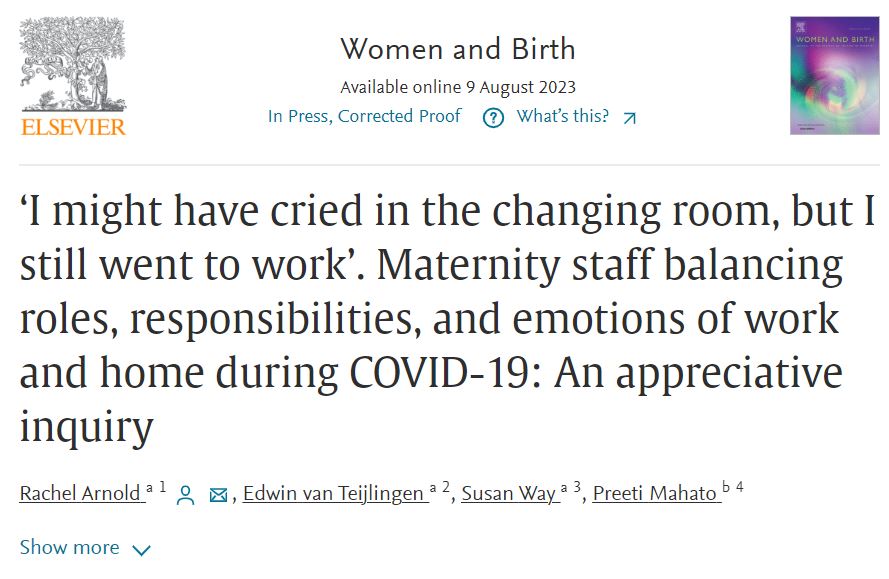

 This paper was proceeded by a more methodological paper on the application of Appreciative Inquiry in this study [2].
This paper was proceeded by a more methodological paper on the application of Appreciative Inquiry in this study [2].







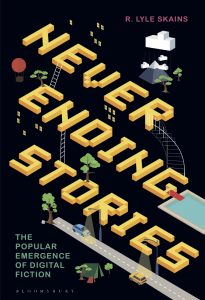


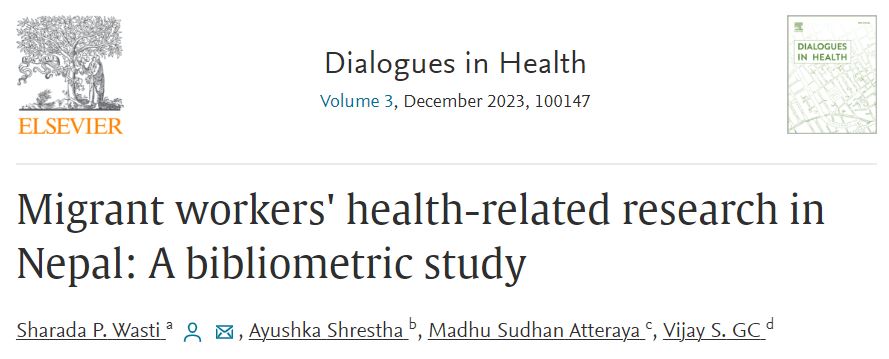
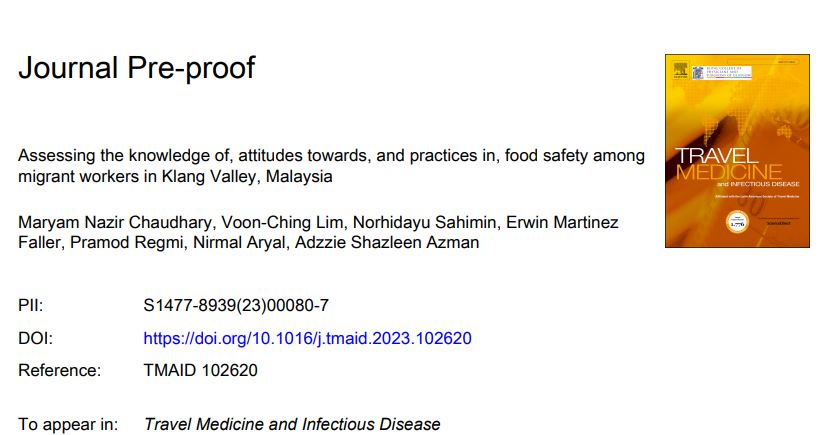
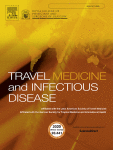

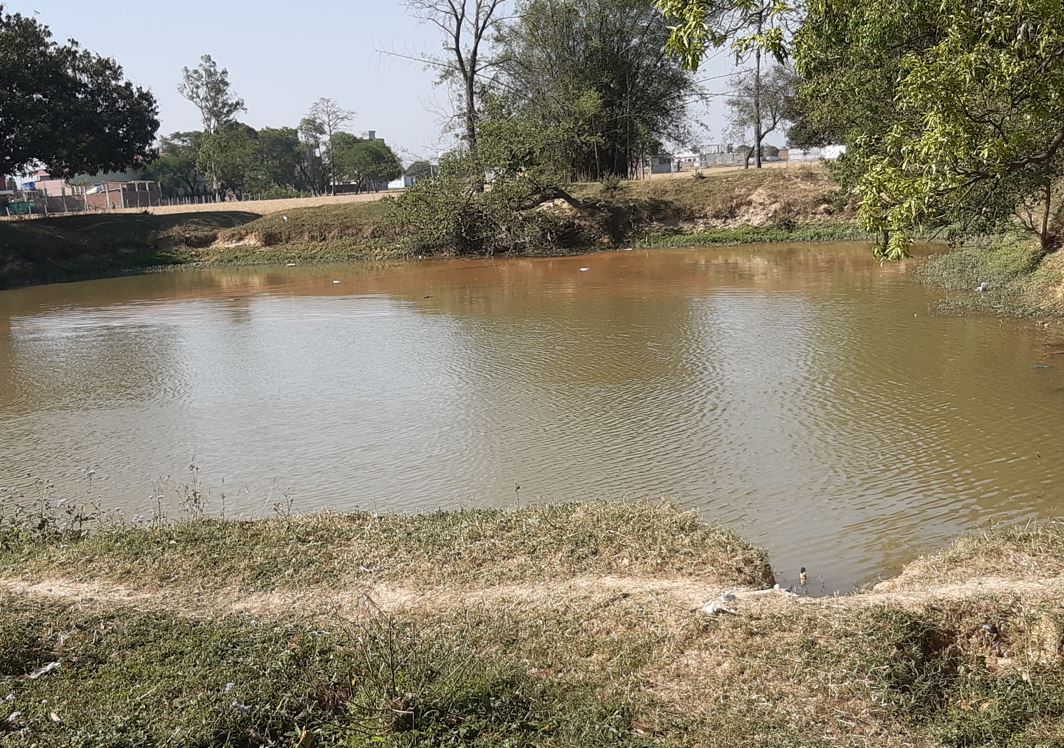


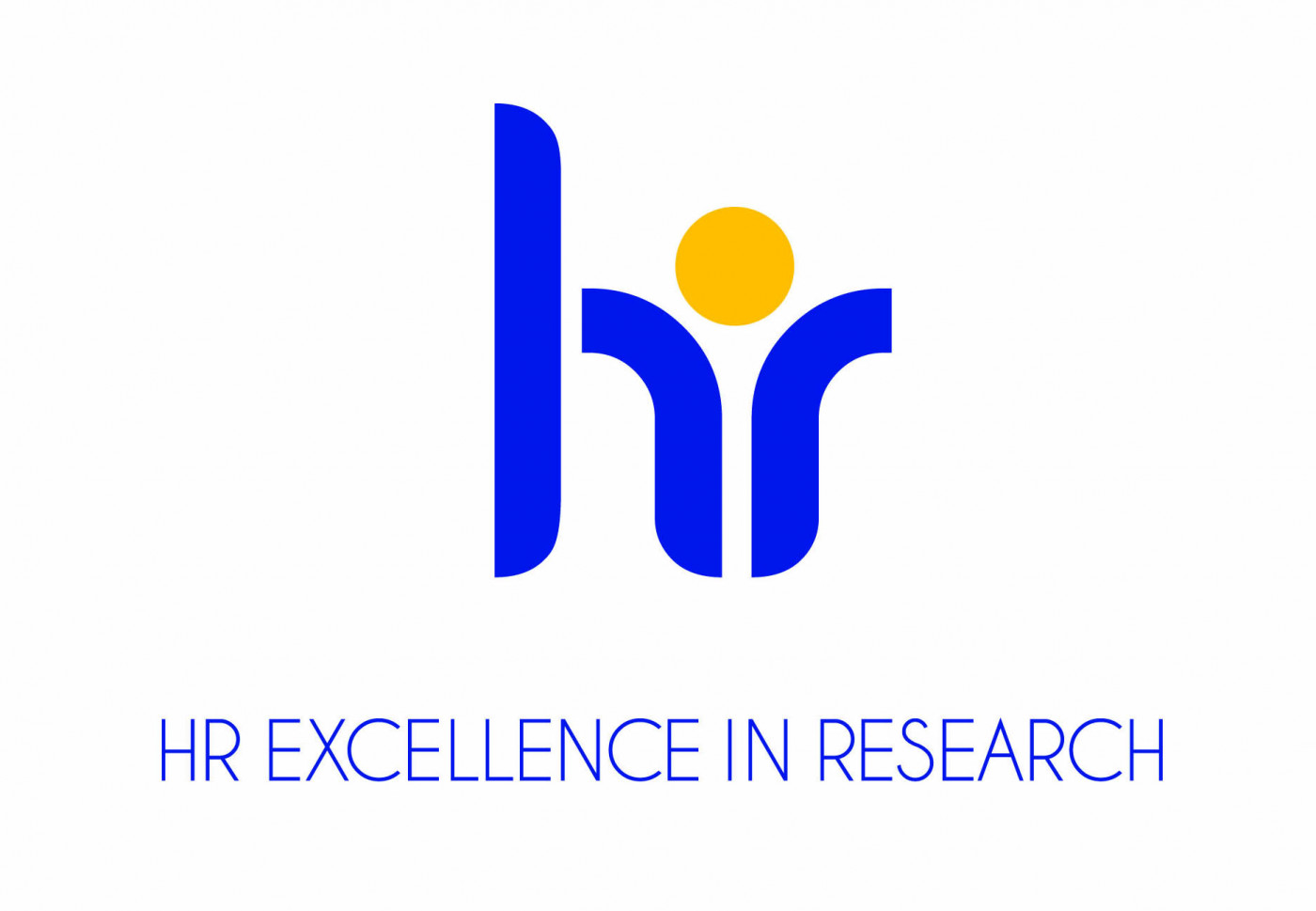 provide ‘bridging funding’ for the continuation of employment of research staff for a short-term (usually up to three months, but up to six months can be considered in exceptional situations) between research grants. BU’s Bridging Fund Scheme is intended to permit the temporary employment, in certain circumstances, of researchers between fixed-term contracts at BU, for whom no other source of funding is available, in order to:
provide ‘bridging funding’ for the continuation of employment of research staff for a short-term (usually up to three months, but up to six months can be considered in exceptional situations) between research grants. BU’s Bridging Fund Scheme is intended to permit the temporary employment, in certain circumstances, of researchers between fixed-term contracts at BU, for whom no other source of funding is available, in order to: Written evidence
Written evidence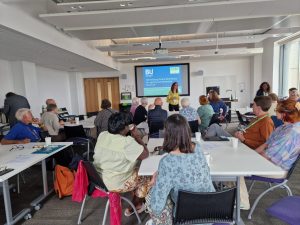
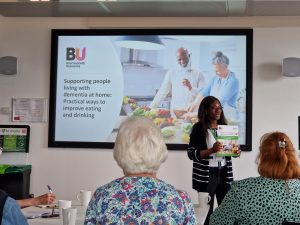
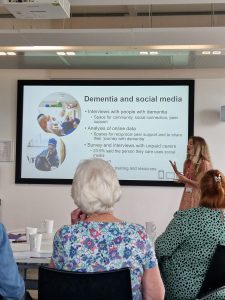
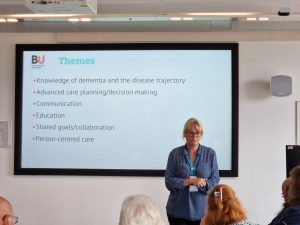




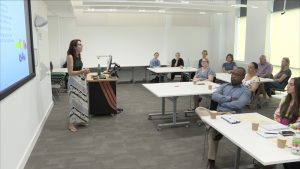












 New weight change BU paper
New weight change BU paper One week to go! | The 16th Annual Postgraduate Research Conference
One week to go! | The 16th Annual Postgraduate Research Conference Geography and Environmental Studies academics – would you like to get more involved in preparing our next REF submission?
Geography and Environmental Studies academics – would you like to get more involved in preparing our next REF submission? Congratulations to three former BU staff
Congratulations to three former BU staff MSCA Staff Exchanges 2024 Call – internal deadline
MSCA Staff Exchanges 2024 Call – internal deadline Applications are now open for 2025 ESRC Postdoctoral Fellowships!
Applications are now open for 2025 ESRC Postdoctoral Fellowships! Horizon Europe – ERC CoG and MSCA SE webinars
Horizon Europe – ERC CoG and MSCA SE webinars MaGMap: Mass Grave Mapping
MaGMap: Mass Grave Mapping ERC grants – series of webinars
ERC grants – series of webinars